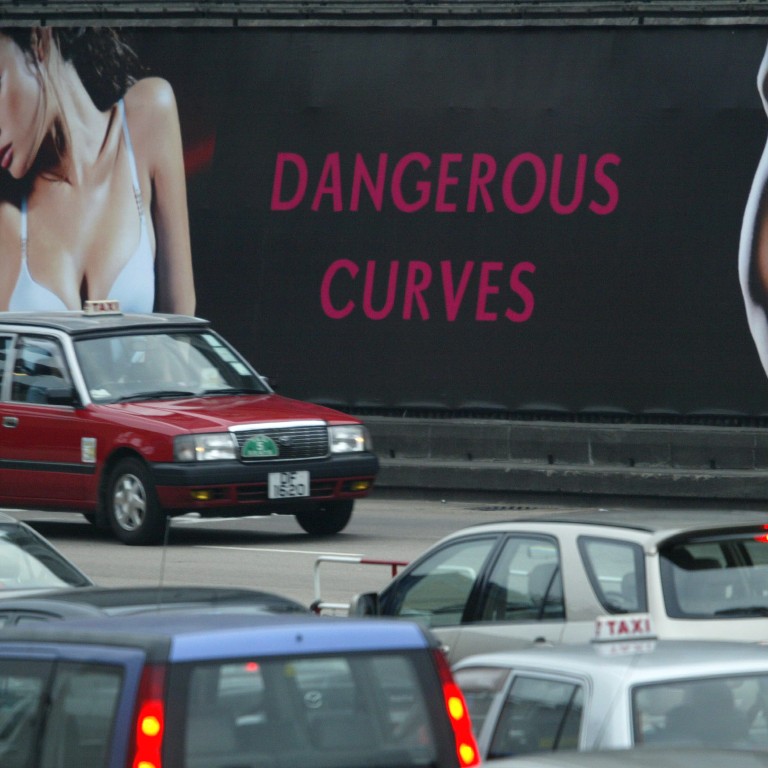
Focus on 'body-shaming' is knee-jerk feminism - there are bigger issues
Insofar as it seems unable to represent women in general as anything other than delicate and feeble-minded – prey to advertisers messing with their heads, prey to images rattling their confidence – the feminism of today is in effect little different to the despised paternalism of old.
Twice last week, Filipino and Indonesian domestic helpers took to the streets of Hong Kong to stick up for their rights – first in response to naked prejudice seeping from a member of the city’s political establishment, later to demand a minimum wage that creeps within striking distance of what might be considered “decent”.
The issues at stake, I would submit, boil down to Hong Kong society denying a sizeable and exploited constituency of women a dignified place within its ranks.
A world away, last Saturday, droves of young middle-class women rallied in London’s Hyde Park. Their beef? They did not like the purport of an advertisement they had seen for diet supplements.
Cropping up on billboards over the last few weeks, the Protein World ad in question featured a svelte, attractive woman – an Australian swimmer – in a bikini, silhouetted against the words “Are you beach body ready?” Hardly subtle, then, I grant you, but certainly well within the normal range of Hong Kong advertising, with its hackneyed stratagems for soft-soaping breast enlargement, slimming pills, whitening treatments and the rest.
Up to a point, and as far as it goes, Hong Kong still lives by the law of laissez-faire. Britain, by contrast, seems to be in a perpetual state of outrage these days – never more than a randomly jerked knee away from banning something, or putting someone in the doghouse, or on a stake.
And so, with dreary inevitability, the posters sparked outrage and disgust on Twitter (where else?) and an angry petition from feminists for their instant removal. The message from its 60,000 signatories, in summary: we think this advert is damaging to women and we’re angry, ergo we’re important and right and ought to be listened to. Drearily inevitable, too, was the British Advertising Standards Agency’s cowed acquiescence in agreeing to embargo the ads.
Back to Hong Kong. On April 23, Su-Mei Thompson and Jess Jacobson, of The Women’s Foundation, published an article in the congratulating France on joining several other countries in banning the employment of models whose body mass index falls below a certain level.
To recap, governments are forcing the fashion industry to address its penchant for bulimics – in much the same way, it seems to me, as the sport of cycling has had to confront widespread doping.
About time, too. Well done, France. Etcetera.
But the authors of the piece were only getting started, and like any NGO bosses worth their salt proceeded to conflate some other issues – mainly about advertisers body-shaming women – into the mix. In fact, their argument about advertising ran so close to what the London sisters wrote in their petition last week that I might as well simply quote from the latter: “Protein World is directly targeting individuals, aiming to make them feel physically inferior to the unrealistic body image of the bronzed model, in order to sell their product.”
OK, look, I know. I’m not a woman. This is not my turf to fight on and if you’re the sort of person who gets really upset by pictures of svelte women, then you’ve probably already decided I shouldn’t be allowed an opinion. Fine, but I’ve come this far, so I’ll carry on.
Insofar as it seems unable to represent women in general as anything other than delicate and feeble-minded – prey to advertisers messing with their heads, prey to images rattling their confidence – the feminism of today is in effect little different to the despised paternalism of old.
Its disapproval is dressed up as protective concern. Its fixation on bodies rather than minds reveals itself in cheerless navel-gazing: “Everyone has an individual body shape ... A body’s function is far more intricate and important than looking ‘beach ready’, so in fact it is Protein World who have confused their priorities.”
Young girls will always worry about the way they look, but most are capable of distinguishing between images and reality and those who struggle tend to grow out of it. If grown women want to skip meals and risk the bad breath and acne that goes with it, then that’s their choice.
Beauty ideals are carved far deeper in our collective psyche than anything advertisers have in their power to manipulate. Which of course they try to do – idealised versions of reality are their stock in trade; triggering ancient fear and greed responses in our brains is their favourite game. So what, we ban advertising altogether?
Fashion has plenty to answer for. At its top end it fills women’s wardrobes with ugly, unwearable clothes; at the bottom of the chain it leads directly to human suffering in developing countries.
Today’s cosseted, privileged feminists would do well to take an occasional look at real exploitation, rights struggles and discrimination in the world around them. They might then recognise the absurdity of trying to politicise a subject like body fat.

